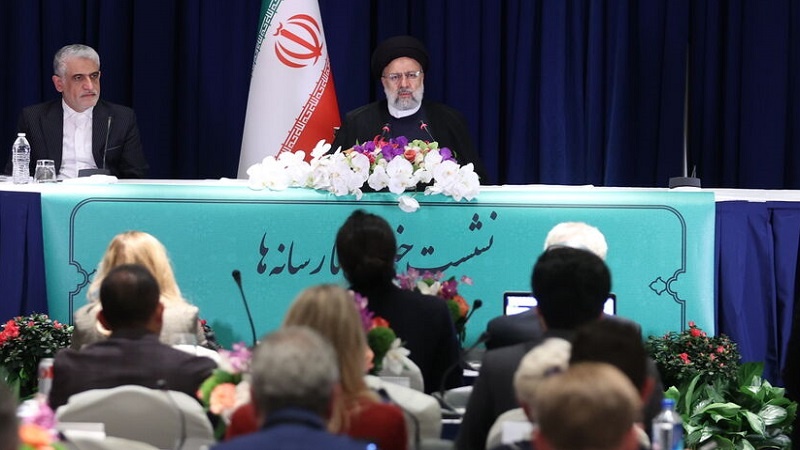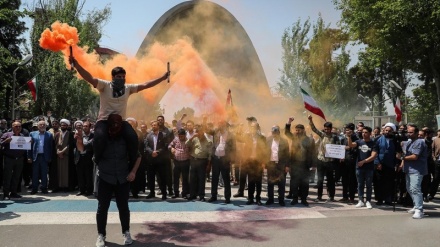Iran will never abandon its nuclear rights, awaits ‘practical’ steps by US, Europe: Pres. Raeisi
Iranian President Seyyed Ebrahim Raeisi says Tehran will never abandon its nuclear rights and expects the parties to a 2015 nuclear deal to take "practical" steps to fulfill their commitments under the agreement.
Addressing a news conference on the sidelines of the UN General Assembly in New York on Wednesday, President Raeisi reiterated Iran's compliance with its commitments according to the nuclear deal, formally known as the Joint Comprehensive Plan of Action (JCPOA).
"Iran has never left the negotiating table and emphasizes that the US and European countries should return to their obligations (under the JCPOA)," he added.
He regretted that the US and its Western allies pinned their hope on last year’s riots in Iran and left the negotiating table, which was a miscalculation.
"If the Americans are ready to fulfill their commitments, the ground will be prepared for [achieving] progress in the interactions and reaching a good agreement," Raeisi said.
Iran proved the peaceful nature of its nuclear program to the world by signing the JCPOA with six world powers. However, Washington’s exit in May 2018 and its subsequent re-imposition of sanctions against Tehran left the future of the deal in limbo.
Raeisi rejected Western media claims about Iran increasing its uranium enrichment level, saying the country only enriches uranium to the level needed for its peaceful nuclear activities.
In response to a question about Iran's move to bar multiple inspectors from the International Atomic Energy Agency (IAEA) assigned to the country, Raeisi said, "Iran has no problem with the principle of inspection unless the performance of some inspectors causes Iran to lose confidence in them."
In that case, he added, it is natural that Iran demands the inspectors be changed.
Saudi ties with Israel stab in back of Palestinian people, resistance
Elsewhere in his presser, the Iranian president once again highlighted the significance of Palestine's liberation which has always been the foremost issue of the Muslim world and said, "The establishment of [Saudi Arabia's] ties with the Zionist regime (Israel) is a stab in the back of the Palestinian people and resistance."
Iran believes that Israel's efforts to normalize relations with certain regional countries would never bring security to them "because regional nations have a deep grudge against this regime for 75 years of its oppression against the Palestinian nation."
In late July, the Biden administration announced that a deal for Israel and Saudi Arabia to normalize relations may be on the horizon following National Security Adviser Jake Sullivan’s talks with Saudi officials in Jeddah.
In order to sign a deal with Israel, Riyadh publicly asked Tel Aviv to implement the 2002 so-called Arab Peace Initiative to establish a Palestinian state first.
However, members of the far-right Israeli regime, led by Prime Minister Benjamin Netanyahu, say they will not make any concession to the Palestinians as part of a potential deal for normalization of relations with Saudi Arabia.
ME



